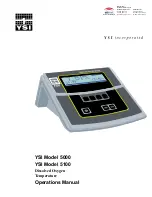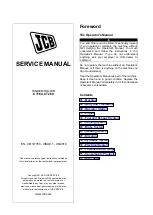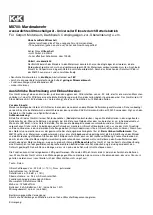
13
E
do this successively engage and disengage PFL on the channel currently playing. Adjust MAIN
OUT until the PFL and MAIN meter readings are identical. With channel faders at +6 dB and
main output level at -6 dB your DX500 has unity gain from input (post gain) to output. Now
PFL and MAIN
metering
should show the same level, allowing direct visual comparison be-
tween outgoing (playing) and incoming (cue) tracks
.
5.2 Headphones - read carefully!
The PHONES section lies to the far right hand side of the DX500, below the MAIN and ZONE OUT controls.
PHONES
controls headphones output level and the PHONES jack
is placed at the front of the DX500.
Right, thats the easy bit explained. Now pay attention. BALANCE
controls the blend of the PFL and MAIN
mix signals. This gives you the interesting possibility of hearing both the outgoing (MAIN) and incoming (PFL)
tracks simultaneously through a single output, via your headphones.
6. SAMPLER
A sampler is a digital device for recording and playing back audio. Your DX500 sampler enables you to capture
and replay a fragment of audio. This can be anything ; a drum pattern; a vocal hook. Up to 24 seconds of audio
can be recorded, repeated and re-tuned.
6.1 Record mode
The sampler section is sited bottom right on your DX500. Two (twin-LED illuminated) mode buttons determine
the samplers status. With PLAY/RECORD
you select between playback and record. The selected mode
is indicated by the illumination of one of the two status LEDs
. In RECORD mode the sampler is always
listening to the PFL bus. Any channel with PFL depressed is (in addition to being sent to the bargraph meters
and headphones output) sent to the input of the sampler. In RECORD mode the sampler is primed to begin
recording once the big START/STOP key
has been hit. The sampler stops recording when the START/
STOP key is hit again. For the duration of the START/STOP keypress, the sampler has been recording, with
a maximum of 24 seconds at 50% or 12 seconds at 100% speed. The ACTIVE LED lets you know if anything
is routed to the sampler input (i.e.. whether any PFL button is down).
+
During recording sampler input level is displayed on the bargraph meters
(remember -
your meters are looking at PFL). The sampler will overload at +7 dB. The onset of digital
distortion, unlike analog, is sudden and horrid. Avoid and always monitor the PFL meter.
6.2 Playback mode
Once you have captured a piece of audio, you can play it back by first switching to PLAY mode
then
pressing the START/STOP key
. Playback mode can be selected by the self-explanatory twin-LED
illuminated SINGLE/REPEAT switch
. In single mode the sample is played only once. Pressing the START/
STOP key while the sample is playing will start the sample again. This enables you to create a stuttering
effect. In repeat mode pressing the START/STOP key while playing will stop the circle. Playback may be
varispeeded from 50% to 100% by the SPEED control
, while playback level can be adjusted by the
SAMPLER OUT control
.
+
Sampler operations do not affect the mix from the three desk channels.
,
With the speed control it is also possible to record slower or faster to create some real radical
effects.
,
When recording drums, start and stop on the first beat of a bar. Now when you playback in
REPEAT mode you should generate a seamless rhythm track.
6. SAMPLER
All manuals and user guides at all-guides.com








































